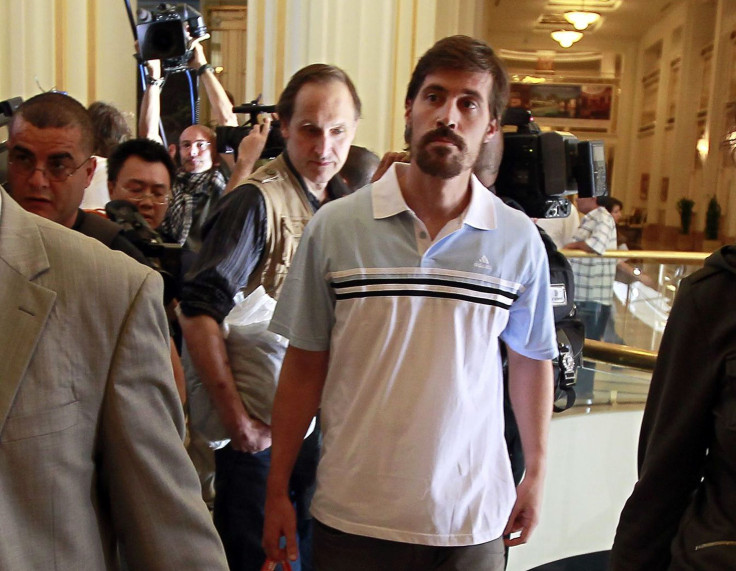US Special Forces Operation Attempted Rescue Of American Journalist James Foley Before Beheading

Dozens of U.S. Special Forces conducted an operation with both air and ground components earlier this summer to rescue American citizens being held by Islamic State militants in Syria, the White House said Thursday. The news came just a day after the militant group published a video showing the gruesome beheading of U.S. journalist James Foley.
The dangerous rescue mission focused on a "particular captor network" within the Sunni militia, also known as ISIS (for Islamic State in Iraq and Syria) or ISIL (for Islamic State in Iraq and the Levant). Several ISIS members were killed and one U.S. soldier wounded, according to CNN. The operation failed because no Americans were found.
“The United States attempted a rescue operation recently to free a number of American hostages held in Syria by ISIL,” the Pentagon said on Wednesday. “This operation involved air and ground components and was focused on a particular captor network within ISIL. Unfortunately, the mission was not successful because the hostages were not present at the targeted location.”
“Intelligence is not a perfect science,” a senior administration official told ABC News. "When we got there, they weren’t there. We don’t know why that is.”
GlobalPost, one of the many publications Foley worked for, launched a private investigation after the journalist went missing in 2012. In September 2013, the firm located Foley and has been able to track his movements ever since, although it is not yet clear how. The results of that investigation were shared with the Obama administration.
"I think it's safe to assume our government knew where Foley was," Philip S. Balboni, the chief executive of GlobalPost, said in a news conference in Boston on Wednesday.
In email correspondence between the Foley family and the Islamic State, the militant group made both financial and political ransom requests, Balboni said. The United States has a policy not to negotiate with terrorists, which means they do not pay ransom. This is partially because doing so would be considered funding terrorism. Al-Qaeda has made around $125 million from kidnapping ransoms since 2008.
“There are no easy answers in kidnapping cases,” Reuters journalist David Rohde wrote on Wednesday. “The United States cannot allow terrorist groups to control its foreign policy.”
Rohde criticized America's (and Europe's) handling of kidnapping cases in his Reuters opinion piece published Wednesday morning. He softened his criticism after hearing about the attempted rescue mission.
The European Union does not have such a policy and paid ransom for two European journalists who were captured with Foley in 2012. Earlier this year, four French journalists and two Spanish journalists were also freed from ISIS custody after the EU paid their ransom.
Perhaps the militants were aware that the U.S. would not pay ransom, or perhaps they saw an opportunity for a different type of gain and decided to use Foley’s beheading to demonstrate their strength and inspire future ISIS recruits. Either way, the decision to execute Foley was made in advance as the final email did not make any requests. Balboni described the email’s tone as “vitriolic” and “full of rage” and made clear that Foley was to be killed.
"Obviously we hoped and prayed that that would not be the case and we communicated as quickly as we could with the captors, pleaded with them for mercy, explained to them that Jim was an innocent journalist, had done no harm to the Syrian people -- indeed, cared deeply about them," Balboni said.
The militant group showed no mercy for Foley. At least one other journalist remains in ISIS captivity, Steven Sotloff, a U.S. freelancer for Time. ISIS vowed to kill Sotloff if the Obama administration did not call off airstrikes on its strongholds in Iraq.
Though he acknowledged that there are no easy solutions, diplomatic or military, Rohde told CNN’s Erin Burnett that the European journalists “are home safe and James Foley is dead.”
© Copyright IBTimes 2025. All rights reserved.





















